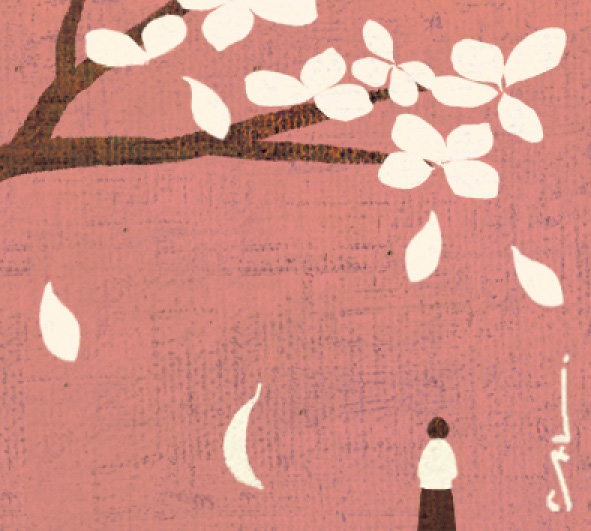Regrets on spring day
Regrets on spring day
Posted May. 27, 2022 07:54,
Updated May. 27, 2022 07:54

A young wife stays relaxed and chills as if she had no worries in her mind even in the absence of her husband. Enjoying spring vibes, this well-groomed lady gracefully takes a stroll up to a palace. She is not old enough to look squarely at the hidden meanings of ups and downs of life. Thanks to her wealthy family from childhood, she has never had any trouble of her lifetime. This may have made it easy for her to push her husband to the path to leadership. All of a sudden, ordinary sceneries, which she takes for granted, come across completely new and unfamiliar. She loses control and composure at the sight of willow leaves springing up in fresh green on the roadside. The rising tides of regrets overwhelm her mind with the sound of sighs. Oh, I should have not pushed him to go out for a government post. What has brought her from the days of inner peace to the point where she regrets encouraging her husband to leave home? Greenish willow leaves may have aroused longings, love, and hatred that have long sat down deep in the bottom of her heart.
The title of Kyuwon means the grudge of abandoned or marginalized women. This type of poems is categorized as poetry of Kyuwon. If poems are uttered by women living in the palace such as court ladies, queens or consorts, they are classified as poetry of Goongwon. Women are rarely authors of this genre. In most cases, this genre of poetry is written by men who voice for such women to describe how they feel. Poets compare their politically isolated life to these women or squeeze out a piece pretending to be emotionally scarred although they are literally fine merely sitting at the desk. That is why Kyuwon by Li Bai, Wang Changling and other authors going off to war stands out with sincerity in it.







